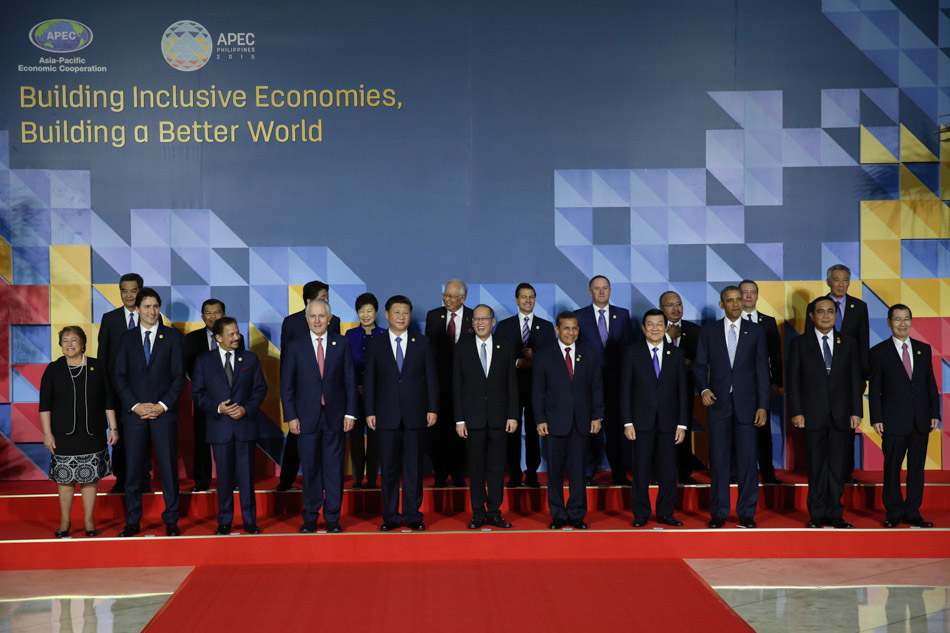India is counting on Russia’s support to bid for membership of the APEC (Asia Pacific Economic Cooperation), say analysts to whom RIA Novosti spoke.
“We would like to have Russia support our candidacy. We believe that Russia should take the initiative, and then things will become more consistent and acceptable. We already have assurances from the United States, but it is not clear how the United States itself will promote this issue,” said Pankaj Jha, research director at the Indian Council of World Affairs.
The annual APEC Summit was held this year in the Philippines on November 18-19. During the years 1993-2013, more than 20 summits of the 21 nation Pacific rim nations’ leaders have been held. In 2012, Russia chaired the APEC Summit for the first time. The forum was held on Russkiy Island in Vladivostok. In 2014, the Summit was held in Beijing.
■Other allies
According to the analysts, other members of APEC are also supporting India’s candidacy. However, it is too early to say when the final decision will be made.
“With regard to the agenda, the Philippines have assured us that they will raise the issue of India’s joining, but only in consultation with the other members. Then the time will come for other countries to act; Russia, USA, and China; because these three are important members of APEC,” said Jha. If these three countries speak out in favour of India, then it will be much easier to obtain membership.
“All three, China, Russia, and the United States, welcome India’s entry into APEC. However, at the moment, there is a moratorium on the admission of new members. This year, we do not expect to see progress in this regard,” said Nandan Unnikrishnan, vice-president of the Observer Research Foundation, a leading think tank.
■What is blocking India
India’s membership in APEC would be mutually beneficial, the analysts said. “For India it would be beneficial to become a member of APEC. The problem is that many of the country’s laws will need to be synchronized with the rules of this organization. There is need to work on this, because India is not ready yet,” said Unnikrishnan. India would emerge a winner, in terms of the expansion of trade and the free movement of labour, he said, while having considerable significance in the diplomatic sphere.
“In the case of India, we have already started the process of liberalization of the economy, but we have no integrated structure in terms of trade,” said Jha. He believes India still has a long way to go to simplify trade procedures and rules for doing business.
■APEC plus
APEC members are aware that they will also benefit from India’s joining.
“India is a big market, and each of the APEC countries is eyeing India, as its middle class has good purchasing power. Russia, the United States, and China would like to see India in APEC because it is a major economy, and could become the third largest economy in the world in the near future,” said Jha. According to him, India’s manufacturing potential has not yet been fully studied.
Unnikrishnan believes APEC countries can gain investment opportunities in India. “APEC will also enjoy great benefits because, over the next two decades, India needs about $2-3 trillion invested in the development of infrastructure projects. All countries that participate in these projects will derive great profits,” he said.
However, he believes many of the smaller states fear that India’s membership will lead to a shift of the center of APEC. “The smaller countries have a problem with the centre of APEC shifting from the Pacific to the Indian Ocean, since India is not part of the Pacific Ocean Region,” said Unnikrishnan.
■Chances for membership
According to Jha, the real chance for India joining APEC will come at the next summit in Vietnam.
“By that time, we will begin making adaptations to the requirements that exist in APEC, in terms of simplifying trade procedures, visa regimes, and customs procedures. By that time, many of these will already have come into force in India. I am confident that the Vietnam Summit in 2017 will become a new point of reference for us,” Jha said.
